
 Flash News
Flash News
The US is involved in the war, why did Trump take the risk of attacking Iran?
Bosnian tourist drowns in Durres
Massive accident on the Librazhd-Qukas axis, 3 injured, one in critical condition
An apartment in Yzberisht is engulfed in flames
Robbed a jeweler in Gjirokastra in 2021, 45-year-old extradited from Greece (NAME)
The 10 strongest criticisms of the PACE report on the May 11 elections!

By Franc Nuri*
The final report of the Parliamentary Assembly of the Council of Europe (PACE), published on 19 June 2025, highlights serious problems that undermine the integrity and fairness of the parliamentary elections of 11 May 2025. Abuses of public resources, pressure on voters and the failure of state institutions to guarantee democratic standards are the most serious concerns according to the report.
Below you will find a detailed breakdown of the 10 most serious election problems according to this international report:
1. Use of state resources in favor of the SP
The ruling party illegally benefited from fine forgiveness, important official activities before the elections, and the use of public infrastructure for campaigning, significantly harming political competition and equal competition between electoral subjects.
2. Vote buying and pressure on voters
The common forms of vote buying (money, interest-free loans, etc.) and pressure on administration employees (phone calls, inspections, threats) throughout the campaign expose a fundamental lack of voting freedom in Albania.
3. Serious irregularities during voting day and vote counting.
On May 11, numerous procedural violations were identified: violation of the secrecy of the vote, unauthorized presence of individuals in polling stations, interference by party representatives, as well as a lack of transparency in the counting, violations of standards which, according to the Report, led to a weak institutional process.
4. Failure of SPAK, the Prosecution and the Police to prevent electoral crimes
The institutional mechanism created for cooperation between SPAK, the Prosecution and the Police did not react in time to vote buying, pressure and criminal interference, failing to protect and conduct the elections fairly.
5. The impact of organized crime and clientelistic networks
The report highlights investigations into the intervention of criminal organizations and patronage networks, linked to local government structures, that have created systematic vote manipulation schemes in densely populated communities.
6. Information manipulation and censorship in the media and social networks
Media ownership is concentrated in political actors, while social networks operate without regulation. The ban on TikTok is perceived as an instrument to silence the opposition, making the campaign a biased “information field.”
7. Lack of guarantees for fair elections according to European standards
In the absence of an equal political environment, where alternative and independent candidates are excluded, elections take place in an extreme "winner-takes-all" atmosphere, with no real space for political debate, pluralism, and democratic dialogue.
8. Problems with the diaspora vote
Although diaspora participation constitutes a positive innovation occurring for the first time, logistical and legal problems (postal delays, tight deadlines, manual counting) have limited voter participation, compromising the effectiveness of the process of involving voters from abroad.
9. Politicization of election administration at lower levels
Appointments of local commission members by parties weakened training and organization, causing an operational vacuum and problems on election day.
10. Problems in reporting and campaign financing
Financial transparency is weak: spending is not sufficiently monitored, sanctions for violators are lacking, and the relevant structures do not effectively control financial resources. This allows parties with unclear finances to dominate the campaign, undermining competition.
cONcluSiON
The Council of Europe's election report tears the electoral process apart. Beyond the diplomatic language, the report below the lines highlights that it was not the Socialist Party but the Albanian government that competed with other parties in the elections!
According to the report, the May 11 elections saw a failure of Albanian institutions to guarantee the integrity of the elections. The political culture of division and the lack of a level playing field for all competitors severely damaged the credibility and legitimacy of the May 11 elections.
In conclusion, the Report underlines that Albania must continue with essential reforms, in line with European standards, so that elections are truly free, fair, and inclusive.
*Legal Representative of the Democratic Party at the CEC
Latest news

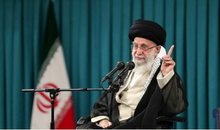
US airstrikes/ Iran warns: The game is not over!
2025-06-22 21:29:22


The US is involved in the war, why did Trump take the risk of attacking Iran?
2025-06-22 20:28:22
Israel-Iran conflict increases global tensions: Is the Albanian economy at risk?
2025-06-22 20:02:04
The US bombed Iran/ Rama: I support Trump's sincere efforts!
2025-06-22 19:40:21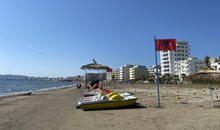
Bosnian tourist drowns in Durres
2025-06-22 19:05:48

The 10 strongest criticisms of the PACE report on the May 11 elections!
2025-06-22 18:41:21

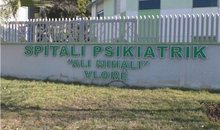
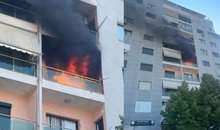
An apartment in Yzberisht is engulfed in flames
2025-06-22 17:32:13


Rinderpest/ The number of outbreaks rises to 10, here are the affected districts
2025-06-22 16:25:12
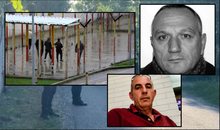

"Trump has opened Pandora's box"
2025-06-22 15:10:04

Pope Leo XIV: Stop the tragedy of war before it becomes an irreparable abyss
2025-06-22 14:24:22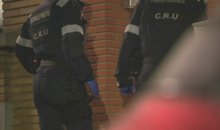
Criminal group busted in Belgium, 10 Albanians among those arrested
2025-06-22 14:00:58
Cities race for tourists, Tirana cheapest, but busiest
2025-06-22 13:35:53
Kurti supports US strike: International security needs fewer nuclear weapons
2025-06-22 13:18:54
Selling drugs in the former Bllok, 23-year-old arrested
2025-06-22 12:57:58
Berisha supports US strike on Iran: Strong call for overthrow of dictatorship
2025-06-22 12:39:35
Starmer supports US attack on Iran, calls on Tehran to return to negotiations
2025-06-22 12:20:56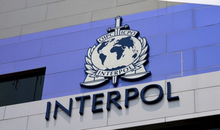
Sentenced to 8 years in prison in Italy, 33-year-old Albanian arrested
2025-06-22 11:54:45
Iran condemns US attack on nuclear facilities, warns of consequences
2025-06-22 11:34:21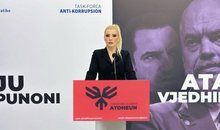

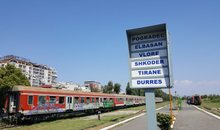
Albanian Railways is affected by collective staff cuts
2025-06-22 10:46:46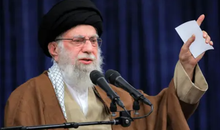
The US has changed the course of the conflict - how will Iran respond?
2025-06-22 10:24:26
Cannabis in drainage canals, 48-year-old arrested in Fier
2025-06-22 10:06:41
Albanians 'invade' New York, thousands march in the Red and Black parade
2025-06-22 09:44:26
Foreign exchange, the rate at which foreign currencies are sold and bought
2025-06-22 09:27:27
Is it worth buying an apartment to rent out?
2025-06-22 09:12:40
US bombs Iran, hits three Tehran nuclear sites
2025-06-22 08:53:08
Horoscope, what do the stars have in store for you today?
2025-06-22 08:35:50
Weather forecast/ How temperatures will change during the day
2025-06-22 08:20:43
Morning Post/ In 2 lines: What mattered yesterday in Albania
2025-06-22 08:00:29

Iranian President: We will not stop nuclear program
2025-06-21 21:46:32
Europe hit by first heat wave: Up to 40°C expected this weekend
2025-06-21 21:19:19
Borussia Dortmund claim first win in Club World Cup
2025-06-21 20:56:04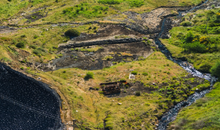

Accident on the Puka-Shkodra axis, two injured
2025-06-21 20:05:04
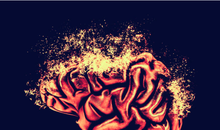
ChatGPT can damage your brain, here's what the study says
2025-06-21 19:20:25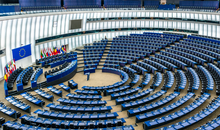


Belarus opposition leader released after five years in prison
2025-06-21 18:22:57
Renowned journalist and teacher in Korça, Vehbi Furxhi, passes away
2025-06-21 18:06:16
Accident in Fier-Levan, two injured
2025-06-21 17:43:25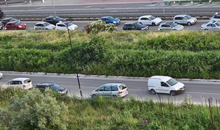
Tourism in traffic, when roads undo success
2025-06-21 17:25:31

Broja on the verge of leaving Chelsea, 4 teams in talks for midfielder
2025-06-21 16:42:02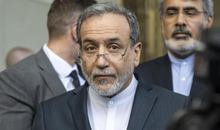
Iran confirms death of tenth nuclear scientist
2025-06-21 16:24:28

The Balkans as a warehouse for migrants?
2025-06-21 15:49:53
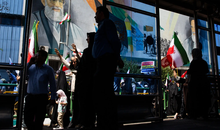
Khamenei names potential successors if he is killed
2025-06-21 15:10:58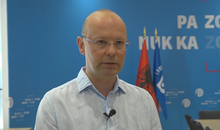


Memli Krasniqi re-elected as PDK chairman
2025-06-21 14:29:12



Israel says it has eliminated another top Iranian commander
2025-06-21 12:43:26

Iran and Israel exchange new attacks, Tehran rejects talks with the US
2025-06-21 12:00:20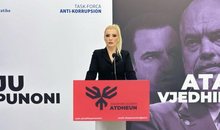
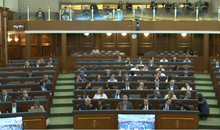
The impasse continues, the constitution of the Assembly fails for the 35th time
2025-06-21 11:14:23
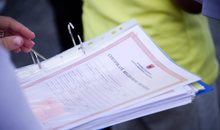
Report: Cadastre ignores Parliament and ALSAI recommendations
2025-06-21 10:35:59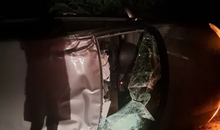
Car loses control on Tepelena-Kelcyrë road, driver injured
2025-06-21 10:14:47

It failed 34 times, today a new attempt to constitute the Kosovo Assembly
2025-06-21 09:37:02
Foreign exchange, June 21, 2025
2025-06-21 09:17:10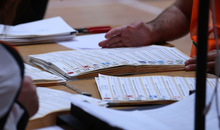


With temperatures up to 35 degrees, check out today's weather forecast
2025-06-21 08:15:54
Morning Post/ In 2 lines: What mattered yesterday in Albania
2025-06-21 07:58:20
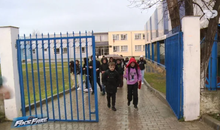

Dance with the mask of evil
2025-06-20 21:11:50
Matura 2025, Albanian Language and Literature exam grades published
2025-06-20 20:40:37
Tabaku: Albania has African wages and European prices
2025-06-20 20:33:02


UK temporarily withdraws embassy staff from Iran
2025-06-20 19:16:02
How Albania became the country with the highest cost of living
2025-06-20 18:49:11


Hail and strong storm "grab" Belshi
2025-06-20 17:35:56

School closures increase parents' financial burden during the summer
2025-06-20 16:49:19
KAS dismisses SP over vote revaluation
2025-06-20 16:34:02
